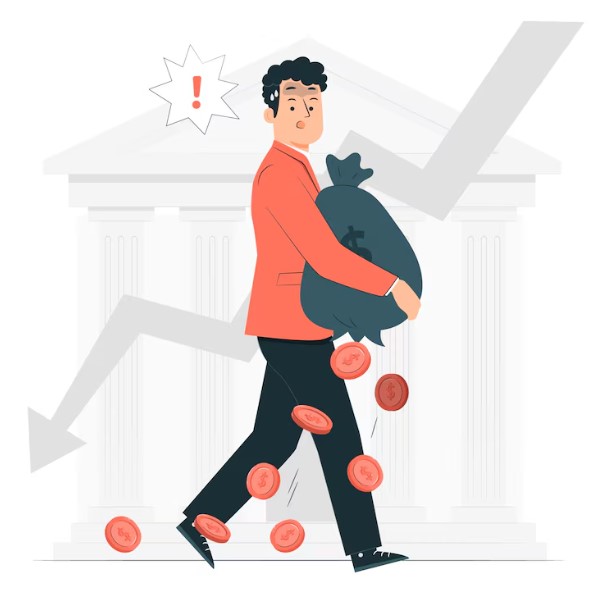Taking out a joint loan, often a family loan or with a co-borrower, can help achieve shared financial goals. However, when one or more parties face financial difficulties, the prospect of debt settlement arises, especially when coupled with unwelcome Bank harassment. While it might seem like a solution for one, settling a joint loan has implications that extend beyond just the individual seeking relief, significantly impacting the co-borrower as well. At Bank Harassment, we believe in providing a clear understanding of these complexities to help everyone involved make informed decisions and protect themselves from unfair bank practices.
Understanding the intricacies of how debt settlement affects a joint loan is crucial for maintaining financial health and preserving relationships, especially when navigating stressful interactions with banks. Here’s a breakdown of the key impacts:
1. Shared Responsibility and the Need for Joint Agreement:
The fundamental principle of a joint loan is shared liability. Both the primary borrower and the co-borrower are equally responsible for the entire debt. Therefore, any decision regarding debt settlement must ideally involve and be agreed upon by all parties. One co-borrower cannot unilaterally decide to settle the loan without the consent of the others, as it directly affects their financial obligations and creditworthiness, and could potentially expose them to continued Bank harassment related to the outstanding debt. Open communication and mutual understanding are paramount in such situations, especially within a family loan context.
2. Impact on Credit Scores of All Co-Borrowers:
Perhaps the most significant consequence of debt settlement on a joint loan is the negative impact on the credit scores of all co-borrowers. When a loan is settled for less than the full amount, it is reported to credit bureaus as “settled” rather than “paid in full.” This notation remains on the credit reports of everyone associated with the loan for a considerable period, typically up to seven years in India. Even if only one co-borrower is facing financial hardship and initiates the settlement, the negative mark will appear on both individuals’ credit reports, since they are equally responsible for the loan. This shared negative impact is a critical consideration for anyone involved in a joint loan, as it can hinder future borrowing even if the other party has faced no financial difficulties or Bank harassment.
3. Potential Strain on Relationships:
Financial disagreements can often strain personal relationships, and the complexities of settling a joint loan, especially a family loan, can exacerbate these tensions, particularly if one party feels the other’s actions are negatively impacting them. If one co-borrower wants to settle due to financial distress, potentially fueled by Bank harassment, while another prefers to continue with full payments to protect their credit score, it can lead to conflict and resentment. Honest and transparent communication is essential to navigate these sensitive situations and find a solution that, while not ideal, is understood and agreed upon by all parties.
4. Legal Implications and Recovery Actions:
In the event of default on a joint loan, the bank has the right to pursue legal action against all co-borrowers for the full outstanding amount. If a settlement is reached with one co-borrower, the bank may still pursue the remaining co-borrowers for any outstanding balance not covered by the settlement, unless the settlement agreement explicitly releases all parties from further obligations. It’s crucial to ensure the settlement agreement clearly outlines the extent of liability for each co-borrower to prevent further Bank harassment directed at those who did not initiate the settlement.
5. Future Loan Eligibility for All Parties:
As mentioned earlier, the “settled” status on the credit report can negatively affect the future eligibility of all co-borrowers for loans. Lenders view a settled account as a higher risk, making them hesitant to approve new credit. Even if one co-borrower had a strong credit history before the settlement and was not the primary target of Bank harassment, their ability to obtain future credit might be compromised due to the settled joint loan.
Navigating Debt Settlement with Joint Loans: Seeking Expert Guidance Against Bank Harassment
Given the complexities and far-reaching consequences of debt settlement on joint loan accounts, especially when dealing with potential Bank harassment, seeking expert advice is highly recommended. At Bank Harassment, we understand the delicate nature of these situations and can provide guidance to all parties involved. We can help you:
- Understand the implications: Clearly explain the potential impact of settlement on each co-borrower’s credit score and future borrowing capacity, as well as strategies for dealing with Bank harassment.
- Facilitate communication: Mediate discussions between co-borrowers to reach a mutually agreeable solution that also addresses concerns about Bank harassment.
- Negotiate with the bank: Work towards a settlement agreement that minimizes the negative impact on all parties involved and potentially includes clauses to cease Bank harassment.
- Explore alternatives: Assess if there are other viable options besides settlement, such as loan restructuring or co-borrower replacement, that might be more beneficial for all parties and less likely to trigger Bank harassment.
Settling a joint loan is a decision that should not be taken lightly. Understanding its impact on all co-borrowers, especially in the context of potential Bank harassment, is crucial for making informed choices and mitigating potential long-term financial and relational consequences. Contact Us at Bank Harassment to discuss your specific situation and explore the best way forward for everyone involved, ensuring your rights are protected against unfair bank practices.



